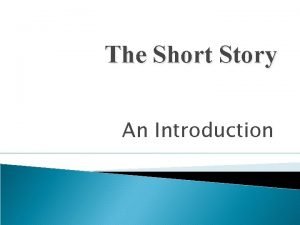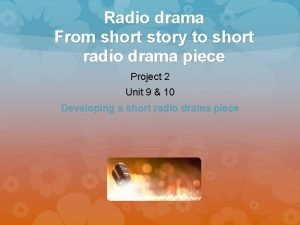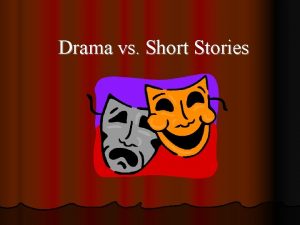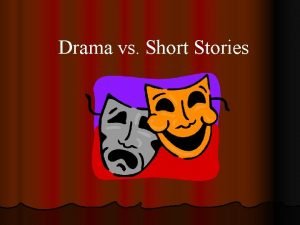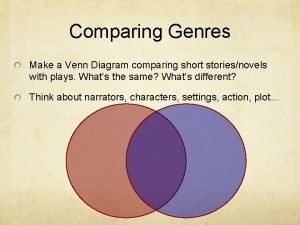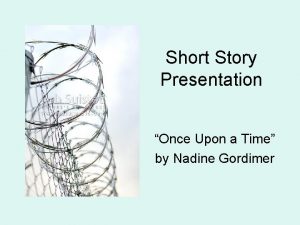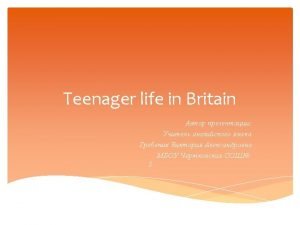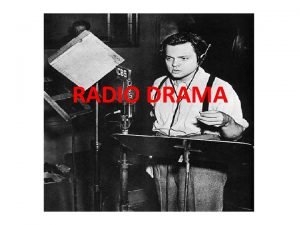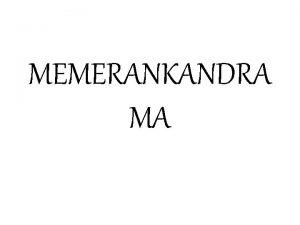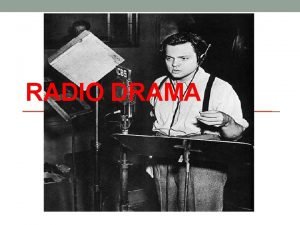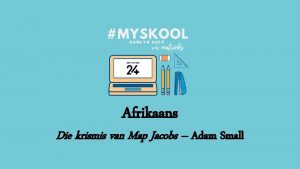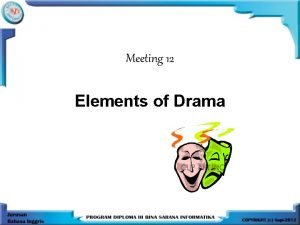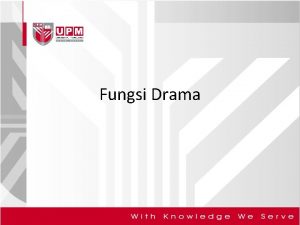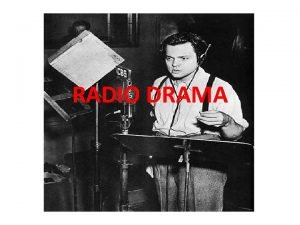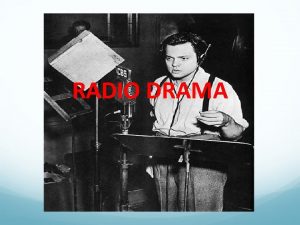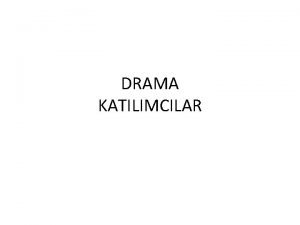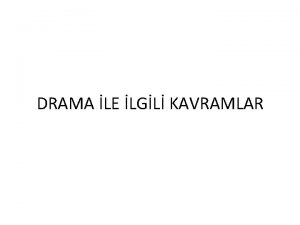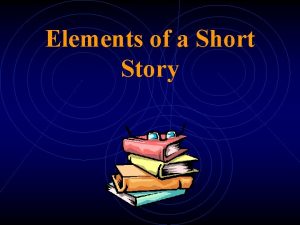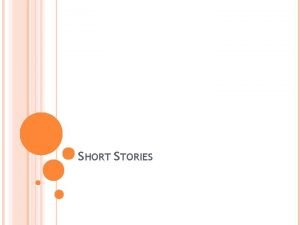Radio drama From short story to short radio















- Slides: 15

Radio drama From short story to short radio drama piece Project 2 Unit 9 & 10 Developing a short radio drama piece

Radio drama codes and conventions RADIO DRAMA Radio drama, commonly known as radio play, is a dramatized, purely audio performance that is usually broadcast on radio, tape or CD. With no visual component, this performance relies on dialogue, music and sound effects so as to help the listener visualize the story and characters.

CODES OF RADIO DRAMA The codes of radio drama include: SCRIPT: It is very important to have a script, without it radio drama cannot be produced. Script contains all the information that you need for your production, for example important cues for dialogue, music and sound effects. This helps to understand writer’s intentions on how the production should sound at the end. It also helps to be organized for everyone who is taking part in a production.

Music at the background of the radio drama creates atmosphere and heighten emotion. Music keeps the story moving by giving it colour and holds the attention of the listener. There is different kinds of background music, for example for a horror radio play music would sound darkly and mysterious. Romance would contain romantic orchestral themes depicting different emotions etc.

Sound effects are the records that you can hear it at the background of the radio play. They add realism to the production and give a clear idea what is going on in the story. SFX helps the audience imagine the situation. However, sometimes sounds effects make the dialogue or monologue harder for listeners to follow. This is why in many radio plays we can hear a silence, which keeps the audience tense and curious. However, silence should not be too long.

Speech and narration Each radio drama has different characters whose job is to make the radio drama more interesting, by changing their voices or having different accents. This shows various personalities of the characters from the story, and make the audience want to spend more time listening to it. Narration is done by someone who has a clear voice so they can be understood by the listener. They mainly speak in third person.

Signposting is the technique for establishing the location at the beginning of a scene. This is done by effects, spot or FX, and sometimes backed by description. If a new location, especially an outside location, is being established, the audience will need more time to absorb this information. So the scene will be established in this way: the beach - sea waves - with a seagull (though that is now a cliché).

Cliff hanger A "cliff hanger" is a major event at the end of a chapter of a book or film episode, one that leaves the viewer/reader in suspense, eager to know what happens next. It is often used to help keep people interested in its resolution (e. g. in soap operas and therefore increase the potential audience).

Flashback Use of fades Flashbacks Shift in a narrative to an earlier event that interrupts the normal chronological development of a story. You can use fades when changing a scene. You can also use fades to show distance, for example if someone is walking away and you hear the voice getting quieter you know how far they have walked away.

Genres of Radio drama Genre is the term for any category of literature or other forms of art or entertainment, e. g. music, whether written or spoken, audial or visual, based on some set of stylistic criteria. Genre is based on codes and conventions (ingredients) recognised by viewers, listener, reader etc. Most common conventions in radio drama are: Crime, Horror, Romance, etc.

Examples of previous years students' radio dramas 'The Haunting of Hickary Hallow' by Jessy Way https: //www. youtube. com/watch? v=gh. FV_HXfyoc 'Pardoner's tale' by Amber Martin https: //www. youtube. com/watch? v=v. Yzs. Zz. KTnn. E 'Something in the night' by Kenny Fowler https: //www. youtube. com/watch? time_continue=14&v=m. Ry. Osm 3 hmt 8

Radio drama analysis In preparation to your radio drama piece you will listen and analyse 2 -3 short radio drama pieces. Make sure to choose range of genres. In your analysis you will talk about the following:

The title of the radio drama and the author The basic plot The genre The target audience (who do you think it is made for) The setting / location / time Characters and how the plot has been delivered ( through narration, dialogue, combination of both). How the music, ambient sounds and SFX have been used to support and drive the narrative? Comment on signposting or how each location has been introduced to the listener? Comment on the narrative structure of the radio drama ( linear, non –linear use of flash backs) How does the drama finish ( close ending, open – use of cliff hanger)

Conclusion What did you learn form your research on range of radio dramas. What can you take from the radio dramas that you have analyse and apply it to your own work?

Task You will research and chose a short story to adapt into short radio drama piece. Choice of genre is yours. You will write a full radio script for your radio drama piece following the radio script writing conventions. Greg will guide you with this task. You will cast actors from the performing art department to play parts in your radio drama. You will record your drama and source music, ambient sounds and SFX individually. You will produce individual edit of your drama piece using Adobe Audition sound editing program. You will play your work to the class and write an evaluation based on peer and tutor feedback.
 Short short short long long long short short short
Short short short long long long short short short Introduction of the story
Introduction of the story Short radio dramas
Short radio dramas Drama vs fiction
Drama vs fiction Short story vs drama
Short story vs drama Literary genres venn diagram
Literary genres venn diagram Once upon a time story beginnings
Once upon a time story beginnings Soap serial
Soap serial Drama türleri
Drama türleri Define radio drama
Define radio drama Drama dalam bahasa yunani bermakna
Drama dalam bahasa yunani bermakna Define radio drama
Define radio drama Karakterontwikkeling van map jacobs
Karakterontwikkeling van map jacobs Elements of acting
Elements of acting Fungsi drama
Fungsi drama Awin radio
Awin radio

